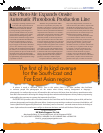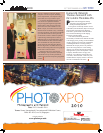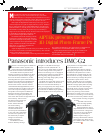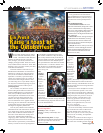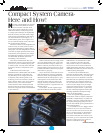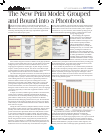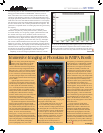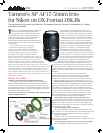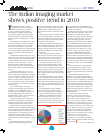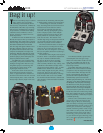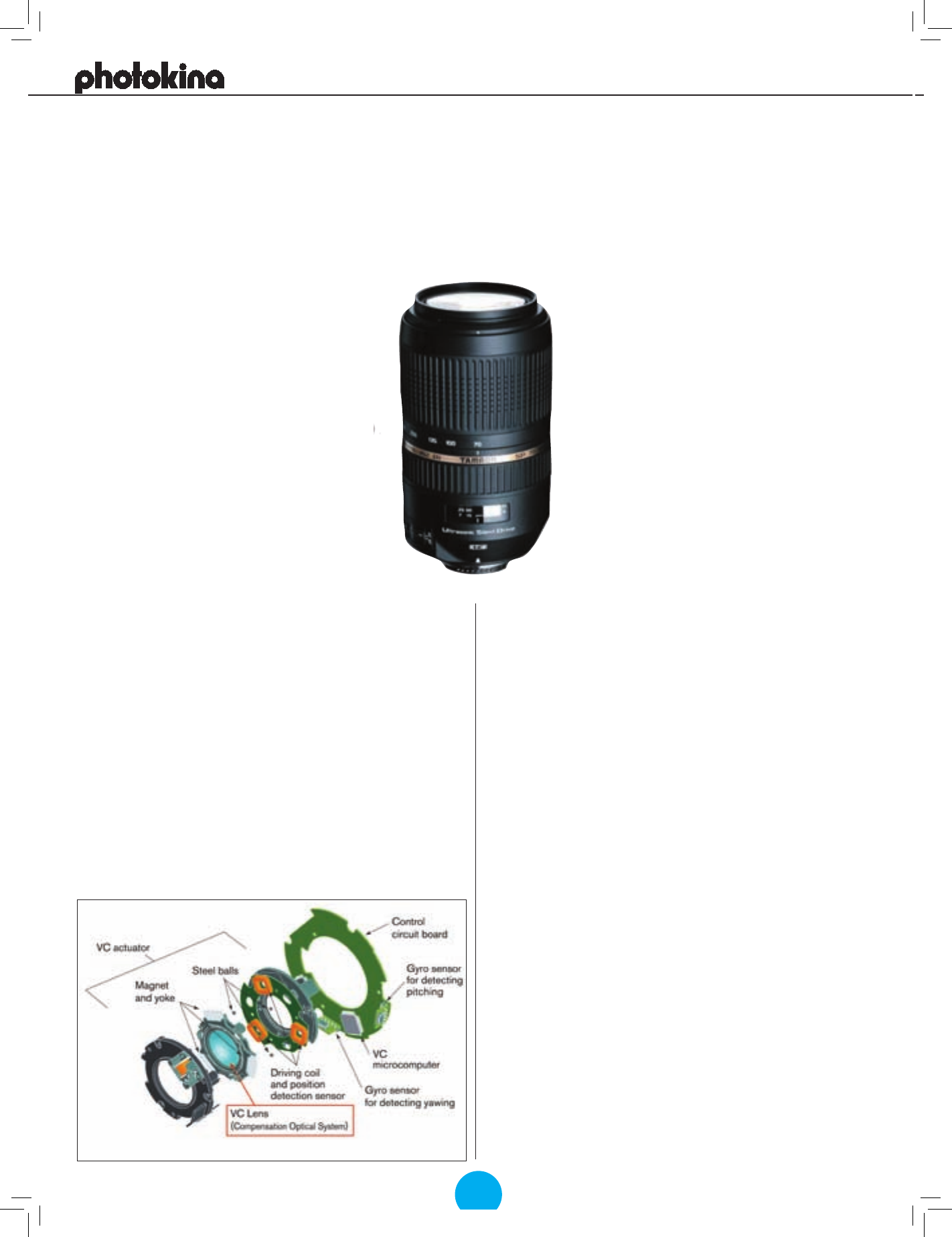
20
23
rd
SEPTEMBER 2010 Day Three
world of imaging
2010
Tamron’s SP AF17-50mm lens
for Nikon on DX-Format DSLRs
The lens features high-speed, high-denition f/2.8 standard zoom with Vibration Compensation (VC) image
stabilisation mechanism.
While the size of a lens tends to increase when it’s
equipped with an image stabiliser unit, Tamron has kept
this lens as compact as possible through improvements
to optical, mechanical and VC designs, thus achieving a
remarkably compact size with a lter thread of 72mm.
Since the new Tamron 17-50mm VC lens is a large
diameter F/2.8 zoom, the optical image stabilisation
system is also relatively large compared with previous
VC lenses. To achieve the same anti-shake effect as the
renowned VC mechanism incorporated into Tamron’s
high power zoom lenses— models B003 and A20—
the engineers had to enhance the VC unit itself, the
mechanism that controls the optical image stabilisation
system. This initially led to an increase in size compared
with existing lenses. It was therefore necessary to reduce
the size of the VC unit while at the same time increasing
its torque of driving power. This could only be achieved
by bringing to all of Tamron’s advanced engineering
capabilities that had enabled is to produce high-power zoom
lenses and light, compact, high-speed standard zooms. After a
prolonged program of development entailing exhaustive research and
tireless testing, Tamron’s engineers nally achieved their goal, a fast,
compact zoom lens with a lter thread of 72mm incorporating both a
large F/2.8 maximum aperture and an effective Vibration Compensation
mechanism.
This stunning achievement entailed innovations in both
manufacturing technology and production engineering, including
improvements to the precision, weight, and strength of the lens’
components. The result: The Tamron SP AF17-50mm F/2.8 XR Di II
VC, an extraordinarily complex lens to manufacture but a joy to use.
Enhanced optical system optimised for the characteristics of digital
cameras, uses special glass for multiple elements, to enhance optical
quality while maintaining compactness. With its innovative use of XR
(Extra Refractive Index) glass, Tamron has implemented advanced
correction of optical aberrations. Two LD (low dispersion) lens elements
are also employed to make effective corrections for axial chromatic
aberrations and chromatic aberrations due to magnication, a major
factor in enhancing optical quality in digital photography. The result:
excellent image performance throughout the zoom range.
• Optimizing the angle of light rays striking the image sensor
To reduce the impact of changes in aberrations due to zooming, the
optical design adopted for this lens was developed to literally guide the
angles of rays of light entering from the centre to the periphery of the
lens. This ensures that the light rays fall within a set range on the image
sensor, enhancing image quality.
• Reduced fall-off of peripheral brightness
The fall-off in peripheral brightness that limits resolution in wide-
angle shooting is very well controlled, resulting in excellent image detail
from the centre to the outer edges and corners of the image eld.
• Superior resolution
As an SP Di II class lens, this lens delivers top imaging
performance in all key parameters-high resolution, high contrast, and
excellent detail rendition.
• Uncompromising countermeasures to reduce ghosting and are
The latest BBAR (Broad-Band Anti-Reection) multi-layer
T
amron Co., Ltd. has released the SP AF17-50mm f/2.8
XR Di II VC LD Aspherical [IF] (Model B005), a
high speed f/2.8 wide-to-moderate-telephoto zoom
lens designed exclusively for Nikon-mount digital SLR
cameras with smaller sensors. The lens features Tamron’s
proprietary tri-axial Vibration Compensation (VC)
mechanism that minimizes the effects of handheld camera
shake. Tamron plans to introduce the lens in a Canon mount
version shortly.
The new lens covers the very popular
17-50mm focal length range (equivalent
to 26-78mm in the full-frame 35mm format)
making it extremely versatile. Its wide aperture
and outstanding performance provide practical
advantages in low-light shooting and aesthetic
image control, thereby enriching the user’s range of
creative expression. The new lens delivers impressive
sharpness and striking contrast over its entire focal-
length and aperture range, and at its maximum aperture
of f/2.8 it produces beautiful images enhanced by shallow
depth-of- field, and smooth, natural transitions in out-of-focus
areas of the image. The VC image stabilisation mechanism, which
controls the effects of camera shake in three planes, provides
more opportunities for sharp hand-held photography at the slow
shutter speeds needed when shooting in low-light conditions (eg.
night or indoor scenes) dramatically enhancing the user’s level of
photographic freedom.
PRODUCT FEATURES
Vibration Compensation image stabilisation mechanism
Equipping a fast standard zoom with the advanced VC mechanism
enables extended hand-held shooting possibilities along with enhanced
versatility. It allows the full range of photographic expression, all the way
from maximizing the expressive background-blurring effects by shooting at
the maximum aperture of f/2.8, to xed focus photography at the smallest
apertures using extended depth-of-eld.
Compact size with a lter thread of Ø72mm, while delivering both a
large F/2.8 diameter and VC




